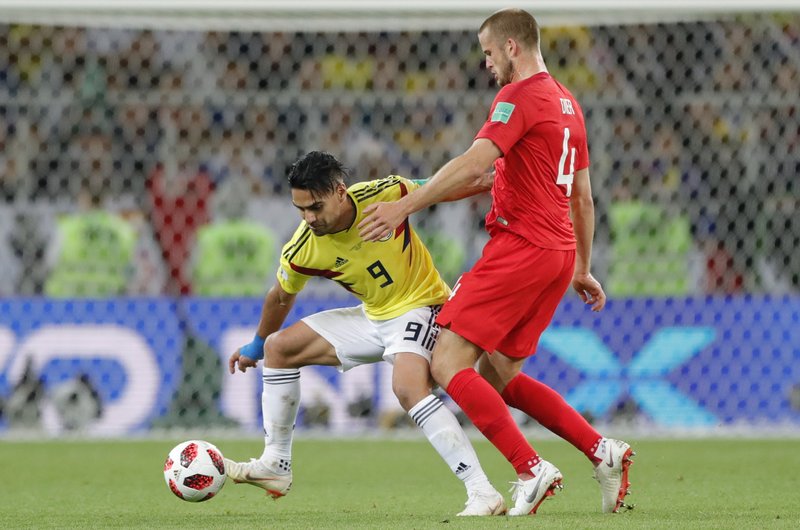MOSCOW -- Explaining Europe's stranglehold on the World Cup requires delving into a thick handbook of seemingly mind-numbing regulations.
The eligibility requirements for clubs playing in Europe's elite club competitions go far beyond guidelines for stadiums, spectators and players at Champions League and Europa League matches.
Flick past finance and governance rules and stop at the section on youth teams.
Since 2004, European football's governing body has required all leading clubs to also operate youth teams at various age groups. Playing at the highest level of the game means also operating at least one team for under-10s, another in the 10-14 bracket and at least two in the 15-21 range.
The revolution, overseen by then-UEFA President Lennart Johansson, ensures a pipeline of technically-gifted talent is coming into the European soccer system. National teams are also beneficiaries.
Dominating this World Cup has not even relied on the heavyweights of Europe. The Netherlands and Italy didn't qualify. Germany's title defense ended in group stage, while 2010 winner Spain and European champion Portugal fell in the round of 16.
The last four teams were all European. France, the 1998 champion, beat Belgium 1-0 in St. Petersburg on Tuesday to advance to a final against the winner of Wednesday's semifinal match between 1966 winner England and Croatia.
"Even though some of our traditional contenders were eliminated, there are other teams which have surpassed expectations," UEFA President Aleksander Ceferin told The Associated Press. "These results validate all the work that is being done to develop football, and also showcase the strength and quality that exists across the whole UEFA region."
Ten of Europe's 14 participants in Russia made it to the round of 16. Of those, six progressed to the quarterfinals.
CONCACAF, which covers North and Central America and the Caribbean, wasn't represented in the last eight. Costa Rica and Panama tumbled in the group stage and Mexico lost in the second round.
"Quite frankly," CONCACAF President Victor Montagliani said, "over the last 40 years CONCACAF as a confederation has not really done much to help the federations try to compete at a world level."
CONMEBOL, the South American confederation, gloated too soon when it tweeted in March about its teams routing European nations 6-0 on a single day of international friendlies. When it came to the World Cup, the status changed.
Even before five-time world champion Brazil lost to Belgium in the quarterfinals, CONMEBOL held a seminar to discuss the lack of infrastructure and organization within youth football. A region beset by corruption will now only hand out money that is earmarked for specific projects.
While Brazil won the Under-17 World Cup in three out of four editions from 1997 to 2003, no South American nation has collected the trophy since. Brazil won the Under-20 version in 2011 but European sides have triumphed since.
Lisbon club Sporting has produced more players at the World Cup than any other team, according to data provided by the CIES Football Observatory. England's Eric Dier is among the 13 Sporting graduates. He's the only member of the England team whose football education was outside his homeland.
"They give you all the conditions you need to learn to play football," Dier said after joining Tottenham in 2014. "I was completely embedded in it and I wouldn't be here if it was not for them. You play 7-a-side with a 2-3-1, just two defenders. It was a quick learning curve."
Tottenham is the best-represented club in the semifinals, with nine players including France captained by Hugo Lloris. It's a sign of the north London team's growing status in European football after three consecutive top-three finishes in the Premier League securing spots in the Champions League.
The World Cup reinforces the status of the Champions League and Europe's top leagues. Those leagues account for 81 of the 92 players on squads of the semifinalists in Russia: England (40), Spain (12), France (12), Germany (nine) and Italy (eight). The wealth generated by the continent's club competitions allows UEFA to raise standards throughout the region.
"We have pledged to invest even more in grassroots football to ensure our players and teams have everything they need to perform at the highest level in the future," Ceferin said.
Sports on 07/11/2018
